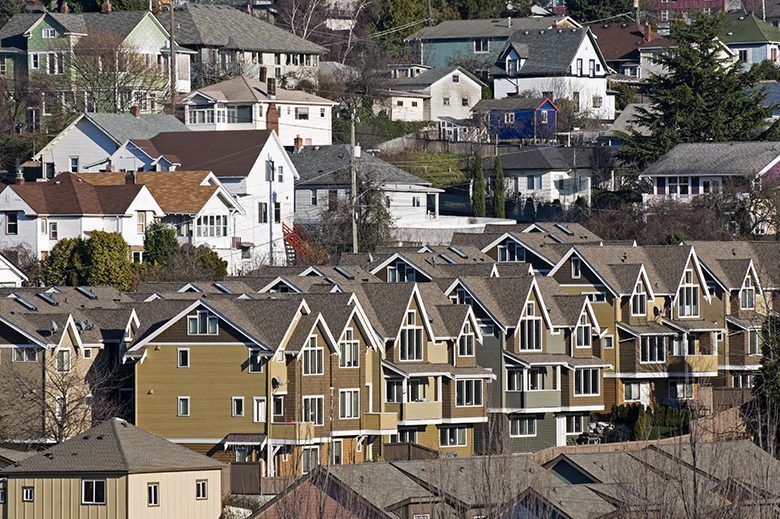Economy
Homeownership in Seattle Is Super Expensive, But the City Is Far Better Off Than the Worst-Case Examples
Narrowing the gap between income and home prices matters in making good on the dream of homeownership for more families, study shows
By Bill Conroy January 10, 2020

Seattle is without doubt one of the more expensive cities in the nation in which to own a home, but its not among the top 10 most expensive housing markets. In fact, Seattle is on the lower end of the top 20 least-affordable housing markets nationally, according to a recent housing-affordability analysis study.
New York-based housing-research platform RealtyHop examined the 100 most populous cities in the nation based on housing affordability and ranked Seattle at No. 16 as of January 2020. The study takes into account median household income, the median home listing price, local property taxes and mortgage expenses, and the share of income required for homeownership.
Seattles numbers break down like this:
*Median Household income: $79,565;
*Median home price: $652,500;
*Estimated mortgage, including taxes: $3,067;
*Share of income for homeownership: 46.26%.
Seattle clearly is not in the running to be one of the nations most affordable housing markets anytime soon, but that is a relative assessment, given the top five least-affordable housing markets, based on median household income, require families to fork over at least 66.6% of their household income just to cover the mortgage costs.
Los Angeles ranks as the least-affordable housing market in the nation, with the share of median household income ($54,501 in that city) required for homeownership exceeding 92% meaning the average family in that city simply cannot afford to own a median-priced home.
Trailing Los Angeles at as the second least-affordable city in the nation is Miami, where some 86.1% of that citys median household income of $33,999 is required for homeownership. New York (85.31%) , San Francisco (82.28%) and Jersey City, New Jersey (66.6%), round out the top five least-affordable markets based on share of income required to own a home.
The takeaway is that higher salaries do make a significant difference on the home-affordability front, but even with better wages, the gap between household income and home prices in the nations least-affordable housing markets is keeping homeownership outside the reach of far too many families.
By comparison, in the nations most-affordable housing markets, even with low wages, the spread between median household income and housing prices is much thinner, making homeownership far more attainable for the average family.
The five most affordable housing markets among the 100 largest cities in the nation, according to RealtyHop, in descending order, are Detroit, where the share of household income required for homeownership is 13%; Wichita, Kansas (16.4%); Fort Wayne, Indiana, (16.43 %); Cleveland, (19.39%); and Kansas City, Missouri, (21.5%).
Markets in the Goldilocks range (ranked 48-51) with respect to home affordability based on the share of household income gobbled up by homeownership costs, are Las Vegas, (32.71%); Philadelphia, (32.31%); Greensboro, North Carolina (32.25%); and Phoenix, (31.65%).
